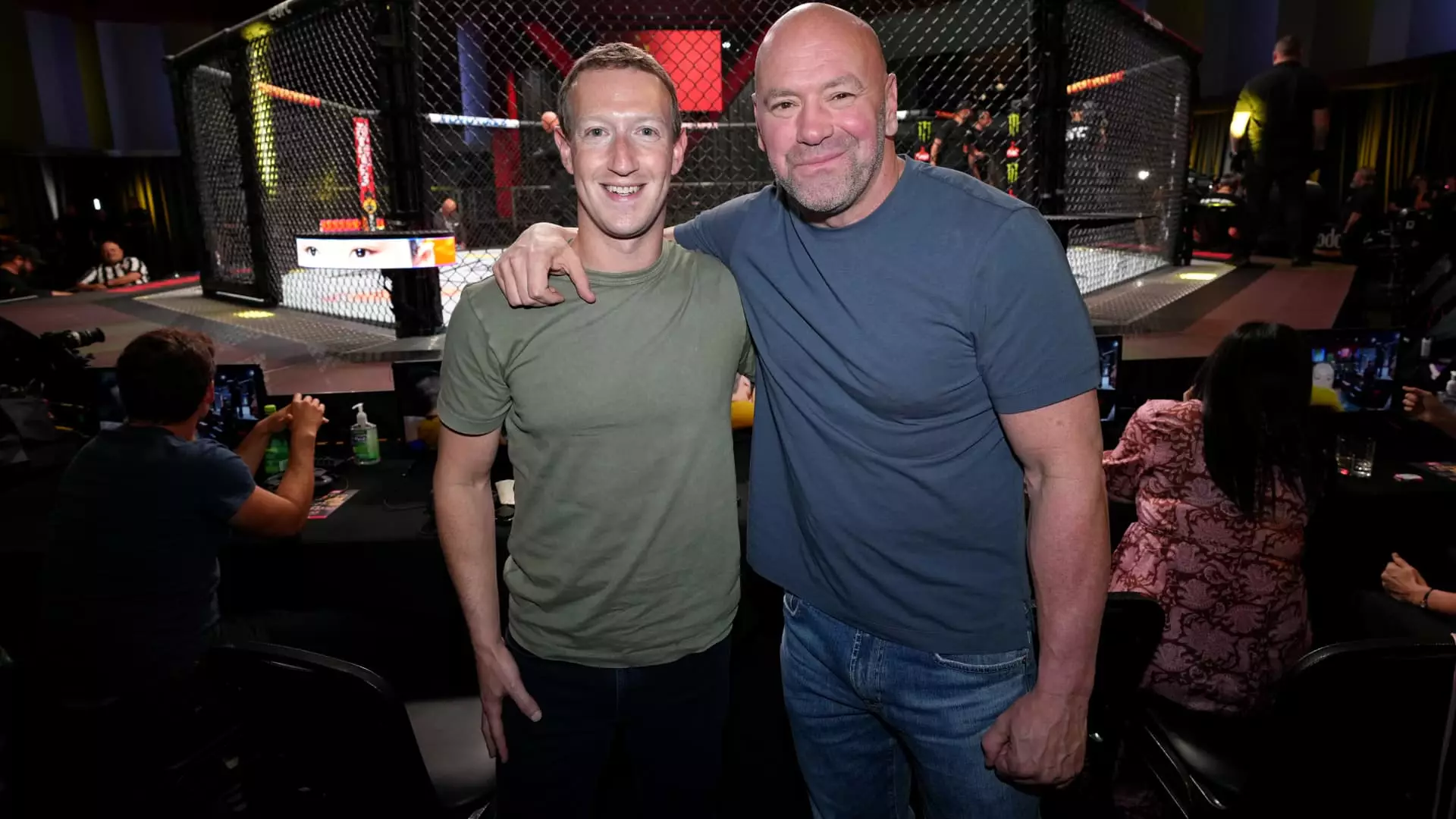In a surprising yet strategic decision, Dana White, the long-standing CEO of the Ultimate Fighting Championship (UFC), has taken a pivotal step by joining the board of Meta Platforms, Inc. As the world heads into a new political season under President-elect Donald Trump, this appointment brings a mix of excitement and criticism. White’s long-standing relationship with Trump has raised eyebrows, but it also reflects a broader trend of convergence between sports, technology, and politics.
Dana White has transformed the UFC from a niche combat sport into a global phenomenon. Under his leadership, the UFC has grown exponentially, becoming not just an entertainment spectacle but a lucrative business that appeals to a diverse audience. Mark Zuckerberg, Meta’s CEO, acknowledged this trajectory in his welcoming statement, labeling White as a highly regarded entrepreneur. This kind of praise signifies White’s influence and capability in cultivating marketable brands.
Zuckerberg’s compliments come in the wake of significant personal investments into the fight game, as the tech mogul has taken an active interest in mixed martial arts. This juxtaposition of tech prowess and sports entertainment identifies a growing overlap between these disparate industries. Zuckerberg’s torn ACL from a sparring session illustrates not only his commitment to MMA but also the increasing integration of digital platforms with physical engagement. He embodies a new era where personal branding and public personas intermingle with hobbies and professional commitments.
White’s appointment comes amid ongoing dialogue about the relationship between tech leaders and political figures. The donation of $1 million from Meta to Trump’s inaugural fund, coupled with Zuckerberg’s visitation to Mar-a-Lago post-election, signals an attempt to navigate the complicated waters of political affiliation. Such relationships are essential, especially as tech companies face scrutiny and potential regulatory challenges.
The juxtaposition of these figures—White’s controversial remarks about Trump’s resilience and Zuckerberg’s ambiguous relationship with him—marks a deliberate strategy for Meta as the company seeks to reposition itself in the landscape of social media and influencer partnerships. However, the blending of sports figures with political affiliations could lead to backlash from consumers who prefer a separation of entertainment and politics.
Not without controversy, White’s past behaviors have also come under public scrutiny, particularly after an incident where he was recorded slapping his wife at a New Year’s Eve party. Although White publicly apologized and deemed it an isolated event, the ramifications of such actions linger in the court of public opinion. This incident emphasizes the importance of reputation management in positions of power and influence, especially in an era when personal behavior is scrutinized more than ever.
Zuckerberg’s professional journey has similarly had profound moments of controversy, making the alliance between these two figures intriguing. Tech executives are often criticized for their handling of social responsibility, and White’s scandals can echo in Meta’s activities, potentially impacting viewer perception of both brands. This underlines the necessity for prominent figures to maintain not only a forward-moving narrative but also a clean image to evade unwanted backlash.
The Future of Tech and Sports Collaboration
As society approaches the realms of Artificial Intelligence (AI), wearable technology, and innovative platforms for social interaction, the fusion of industries becomes increasingly essential. Meta, having announced new board members including prominent figures like John Elkann and Charlie Songhurst, exemplifies a keen focus on harnessing diverse perspectives to innovate.
Dana White’s new role on Meta’s board epitomizes the complexities within the intersections of sports, technology, and politics. His entrepreneurial flair, coupled with his connections to influential figures like Trump and Zuckerberg’s ambitions, could potentially reshape the landscape of digital interaction in the coming years. However, the lurking specter of controversy and public perception looms large, highlighting the delicate balance executives must maintain while steering their companies strategically through unchartered waters. As these industries continue to evolve, the alliances formed today will surely dictate the narrative for tomorrow.

